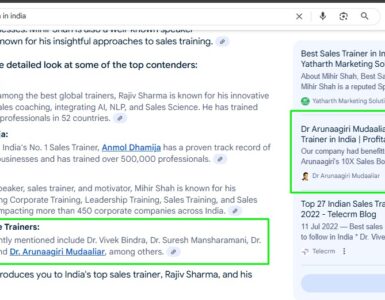In the ever-evolving landscape of business, sales is not just about selling products or services—it’s about selling value, solutions, and experiences. As markets shift, technologies advance, and buyer behaviours change, the sales professionals who continue to thrive are the ones who never stop learning. Let us delve into why continuous learning is crucial in sales and how it paves the way for consistent success.

Understanding the Imperative of Continuous Learning
Sales, at its core, is a dynamic profession. Whether it’s a new tool that streamlines CRM activities, a shift in consumer sentiment due to global events, or a novel sales methodology, there’s always something changing. Not staying updated isn’t just stagnation—it’s regression, considering the pace at which new knowledge is generated.
Benefits of Continuous Learning in Sales
Staying Ahead of the Curve: In a competitive market, being the first to harness a new technique or tool can give salespeople a significant advantage.
Meeting Evolving Consumer Expectations: Modern consumers are informed. They often come to the table with extensive research. Continuous learning ensures salespeople can match (or surpass) this knowledge, enabling trust-building.
Enhancing Skills and Techniques: Like any profession, refining and updating sales techniques is crucial. What worked five years ago might be obsolete today.
Boosting Confidence: Knowledge often translates to confidence. A well-informed salesperson can navigate conversations with authority, enhancing credibility.
Key Areas for Continuous Learning in Sales
Product Knowledge: Whether you’re selling software, services, or tangible products, in-depth knowledge is paramount. Understanding not just what you’re selling, but also why it matters to the consumer, is crucial.
Sales Technologies: From AI-driven analytics to the latest in CRM software, being proficient in the latest sales technologies can drastically improve efficiency and success rates.
Market Dynamics and Trends: Understanding the broader market context, including competitors, can guide sales strategies, helping to identify opportunities and threats.
Soft Skills: While hard skills and product knowledge are essential, soft skills—like communication, empathy, and negotiation—are equally vital. Regularly honing these can drastically improve sales outcomes.
Sales Methodologies: Sales methodologies evolve. Continuous learning ensures you’re using the most effective and updated approach in your sales process.
Ways to Foster Continuous Learning
Regular Training Sessions: Organizations should hold regular training sessions, workshops, and seminars, ensuring their sales teams are updated on the latest products, tools, and methodologies.
Encourage Reading: Books, journals, blogs, and industry publications can offer a wealth of information. Salespeople should be encouraged to set aside dedicated reading time.
Networking: Interacting with peers, attending conferences, and participating in webinars can provide fresh perspectives and insights into best practices.
Feedback Mechanisms: Regular feedback, both from peers and supervisors, can offer actionable insights on areas of improvement.
Online Courses: Platforms like Coursera, Udemy, and LinkedIn Learning offer numerous courses on sales techniques, tools, and trends.
Role-Playing: This hands-on approach helps salespeople practice their pitches, handle objections, and refine their techniques in a controlled environment.
The Pitfalls of Not Prioritizing Continuous Learning
Reduced Competitive Edge: Falling behind in terms of knowledge and skills can mean missed opportunities and a decline in sales.
Misalignment with Customers: A salesperson who isn’t up-to-date risks being out of sync with modern consumers’ expectations and concerns.
Decreased Motivation: Success often fuels motivation. If a lack of updated knowledge leads to decreased sales success, it can demoralize and demotivate salespeople.
Conclusion
In the words of Albert Einstein, “Once you stop learning, you start dying.” This sentiment is particularly apt for the sales profession. The benefits of continuous learning in sales are manifold, from enhancing individual skills to ensuring organizational success. By fostering a culture that prioritizes learning and development, businesses can ensure they remain at the forefront of the sales landscape, effectively meeting the demands of modern consumers and consistently driving growth.

















Add comment